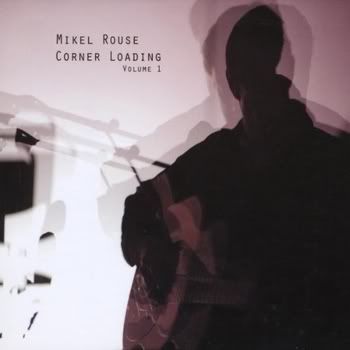
[purchase]
Let’s talk about the blues for a moment. Before World War II, many blues musicians played guitar and sang, maybe they accompanied themselves with a harmonica, and that was it. Blues was a musical form that was still taking shape. The conventional 12-bar structure we know today had not yet taken hold, so these old-time blues players were free to manipulate time in their songs. Lightning Hopkins, for one, used to add or subtract measures, stretching or condensing time as the mood struck him, but in a way he always controlled. Also, there were blues songs that had numbers of bars, or even time signatures, that just wouldn’t make sense to today’s blues audience. Think also about John Lee Hooker. Most of his music was made after the war, and he mostly used the 12-bar structure. Hooker would play intricate patterns on the guitar, but a pattern would go on unchanging for the length of a song, without even a key change. In the hands of many artists, this would be deadly dull to listen to, but Hooker makes the repetition insistent and powerful.
Mikel Rouse shows, on his album Corner Loading Volume 1, that he knows this history, and that he has the skill to apply it in his own work. On two songs, Rouse accompanies himself only with handclaps in unusual rhythms. For the rest, It’s just Rouse and his guitar, plus harmonica on two songs. Unlike any of the music I featured in my last post, all of these songs could be recorded in one take, with no overdubs. And here we learn that Mikel Rouse is a great guitar player. He creates intricate patterns and plays in a rhythmic style that frees him from the need of a band. So Corner Loading can be considered to be his first solo album. (Technically, as I discussed last time, that would Quorum, but Corner Loading is the first album I have heard from Rouse that would require neither a dance troupe nor other musicians to perform live). The rhythmic experimentation of the early blues artists is here, and so is the insistent power found in John Lee Hooker’s music. Years is one song that sounds more like early jazz to me, with its clustered notes making unusual close harmonies.
The lyrics are another matter. Rouse is not one to tell his own story, as blues musicians do. Rouse can filter someone else’s story through his own perceptions, or he can create a character and tell his story in a long form work. But Rouse is usually looking at a bigger picture, even in these cases. Corner Loading is not a long-form work, but simply a collection of songs. So here, Rouse is not telling a story at all. Even so, these songs are heartfelt. Beginning with Active Denial, and ending with Ad Man, Rouse is commenting on the state of the world. He is interested in how people are able to deceive themselves, or be deceived, so that they can pursue their self-interest, and somehow not see the pain of others. Lonesome Shoeshine has wealthy and powerful men wondering why the man who used to shine their shoes cannot now find work. The chorus is a single line, and the only mention of the title character, but it gives the song all of its power. Made Up, Oh Lord is the lyric that is closest to the blues in the lyric. The song is a prayer and a cry of pain, and Rouse’s performance really puts it over. There are two songs that have minimal lyrics, and they are together on the album. The only words to Be Real Bad are, “ You know I ain’t gonna be real bad ,” sung over several times. This has a certain hypnotic power, but I could see someone adding additional lyrics for a cover version, and that could really work, because Be Real Bad does have a great melody. The lyrics of Trouble Making are slightly less skeletal, but the shifts in musical mood are what make this one work. Elsewhere on the album, Rouse shows himself to be an economical but eloquent lyricist.
The last piece of the puzzle on Corner Loading is Mikel Rouse’s voice. This is an album that Rouse could not have made when he was younger. His voice used to be high and smooth, and that would not have worked. But now, Rouse’s voice has deepened somewhat, and it now has a gravelly quality, and that is what this album needs. Rouse sing s these songs in his weathered voice, but with great emotion. The title of the album implies that there will someday be a volume 2. Rouse’s career indicates that there may be several fascinating detours before that happens. Either way, I will be looking forward to seeing what he does next.
Mikel Rouse: Years
Mikel Rouse: Lonesome Shoeshine






0 comments:
Post a Comment